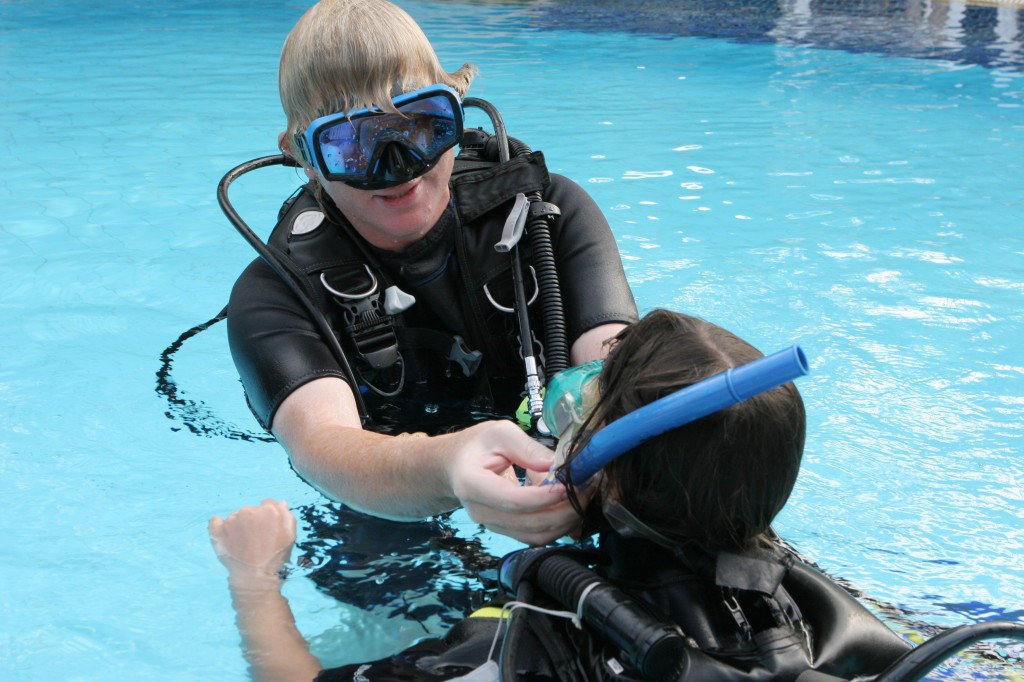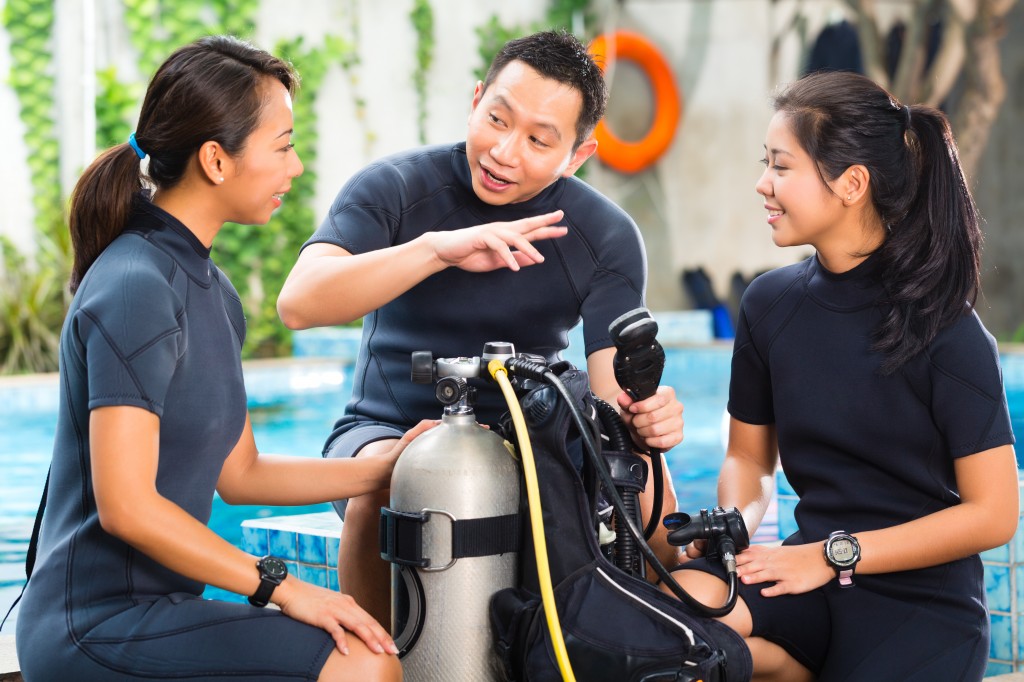For most of us, diving is a passion — and it’s also a hobby, rather than a way of life. But that doesn’t have to be the case: What if that amazing dive trip you’re always looking forward to wasn’t just a brief interlude from everyday life? What if your everyday life was diving? What if, instead of always working to save money for diving you got paid to do it? This is the reality for dive professionals all over the world, who spend every day in or around the water, introducing people from all different cultures to our planet’s marine ecosystems. Becoming a dive professional takes time, investment and quite a bit of dedication, but achieving a professional certification could be life changing.
The first step to making the transition from recreational diver to dive professional is becoming a divemaster. Once gained, this certification facilitates employment as a diver, and allows you to guide fun dives and assist with courses and qualifications. You’ll pay your dues during your DM course as a trainee with the center that’s qualifying you. This custom enables you to get a feel for how the dive industry works, and makes you more valuable to future employers. It is possible to complete the course without this internship, but to do so is inadvisable — you’ll learn skills far beyond the requirements of the course, as well as how to function as part of a dive team, and you’ll have the time of your life doing so.

The DM course is intensive and requires a high level of both physical and mental commitment. Like recreational PADI courses, it combines theory with practical skills; unlike recreational courses, it takes a minimum of ten days to complete and involves a wide variety of assignments, role-play scenarios and workshops. These tasks incorporate many aspects, including deep-dive scenarios, assisting with Open Water courses, delivering briefings, perfecting skills and learning to map dive sites. Most of the training sections are designed to increase individual confidence and ability, in order to produce candidates capable of safely and efficiently dealing with any problems that may arise when leading other divers after qualification. Prospective divemasters must be at least 18 years old, undergo a doctor-conducted physical, be a Rescue Diver or equivalent and have completed EFR training within the last two years. To start the course you must have logged 40 dives; before completing the qualifications, you must have logged 60 dives.
But despite the full-on nature of the Divemaster course it’s also one of the most rewarding qualifications you will ever achieve. Becoming a PADI Divemaster makes you employable in more than 180 countries and territories worldwide, allowing you to travel and earn money at the same time. Dive professionals not only change their own lives, but also have the potential to change the lives of others every day. It is not a particularly lucrative career choice, and sometimes it is a hard job — difficult customers, long hours and poor conditions can all make for a bad day in the office. But when you consider that your office is the ocean and your uniform is board-shorts, a bikini or a wetsuit, those challenges seem like a small price to pay.



